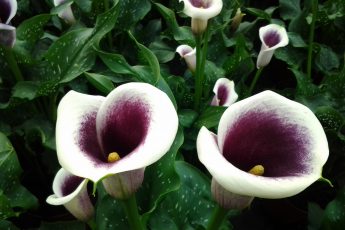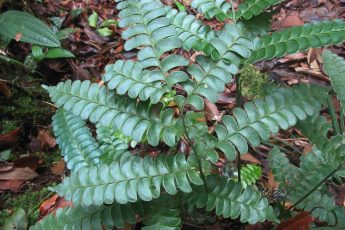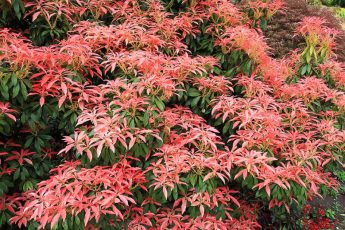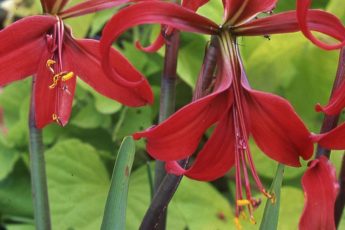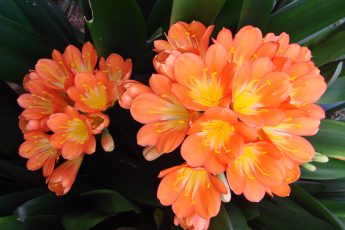Pyrostegia venusta, commonly known as the Brazilian Flame Vine, is a captivating ornamental vine that belongs to the Bignoniaceae family. This perennial plant is celebrated not only for its lush, green foliage but also for its spectacular, vibrant orange-red tubular flowers that bloom during the autumn and winter months. Predominantly found in South Brazil, as well as the northern regions of Argentina and Paraguay, Pyrostegia venusta has become a cherished addition to gardens around the world due to its dazzling appearance and relatively easy maintenance.
Growth Characteristics and Environment
In its natural habitat, Pyrostegia venusta can scale impressive heights, reaching up to 15 meters under optimal conditions. This fast-growing liana thrives in warm temperatures, ideally between 57.2-78.8°F. It displays resilience even in slightly cooler temperatures, down to 50°F, although extended exposure to colder conditions can be detrimental.
To achieve its full potential, Pyrostegia venusta requires bright, direct sunlight. Southern or western windows are ideal locations for potted specimens. While it can tolerate partial shade, optimal lighting promotes better growth and a more exuberant flowering phase. It is essential to maintain an increased level of humidity for the plant, which can be accomplished through regular misting.
Soil and Watering Needs
Pyrostegia venusta is not particularly demanding when it comes to soil, but it does thrive in a substrate that is well-aerated and offers good drainage. A recommended soil mix consists of equal parts light turf, peat, humus, leaf soil, and coarse sand or perlite, with the optional addition of charcoal bits for added drainage. Regular watering is crucial, especially during the summer, when the plant should be watered every 2-3 days. However, it’s important to avoid overwatering as excessive moisture could lead to root rot. Similarly, allowing the soil to dry out completely could cause the leaves to droop and the buds to fall.
Fertilization and Propagation
Fertilization plays a key role in the robust growth of Pyrostegia venusta. During its growing season, which coincides with its bloom cycle, it benefits from a balanced application of complex mineral fertilizers every 2-3 weeks. Care should be taken to avoid excessive nitrogen in the soil, as this can inhibit flowering.
For those looking to propagate this beautiful vine, Pyrostegia venusta can be reproduced either by seeds or by rooting semi-woody cuttings in a peat and sand mixture. Early spring is generally the best time for propagation to ensure successful root development and establishment.
Maintenance and Pest Management
Regular maintenance of Pyrostegia venusta includes annual repotting for young plants, transitioning them to larger containers as they grow. Mature plants should be repotted every 2-3 years. Pruning is essential to encourage branching and enhance flowering; it should be part of the regular care routine. Additionally, sturdy support structures like trellises or lattices are necessary to help guide and support the vine’s upward growth.
While fairly resilient, Pyrostegia venusta is not immune to pests such as spider mites, scale insects, aphids, and whiteflies. Monitoring and managing these pests promptly is vital to preserve the plant’s health. Problems such as root rot from overwatering or lack of flowering from insufficient light can also arise, emphasizing the importance of providing the right environmental conditions.
Medicinal Uses and Safety
Beyond its ornamental appeal, Pyrostegia venusta has notable uses in traditional Brazilian medicine, where its leaves are utilized as a tonic and for treating diarrhea. As for its toxicity, there is currently no confirmed evidence indicating harmful effects on humans or animals, making it a generally safe choice for domestic gardens.
In conclusion, Pyrostegia venusta is a striking plant that, with the right care and environmental conditions, can offer both aesthetic and functional benefits. For garden enthusiasts seeking to add a brilliant splash of color and vibrancy, cultivating the Brazilian Flame Vine can be a deeply rewarding experience.


